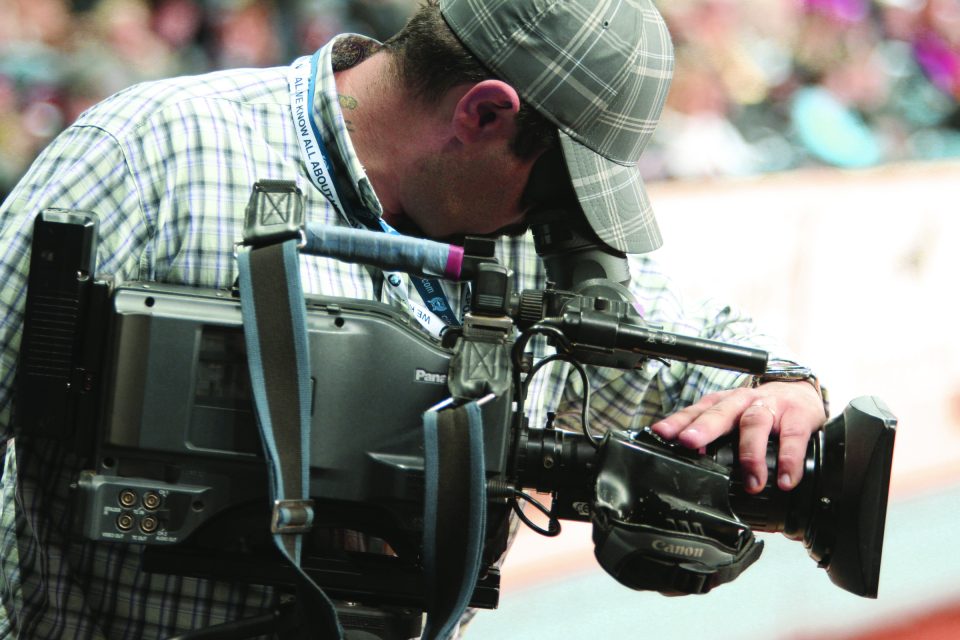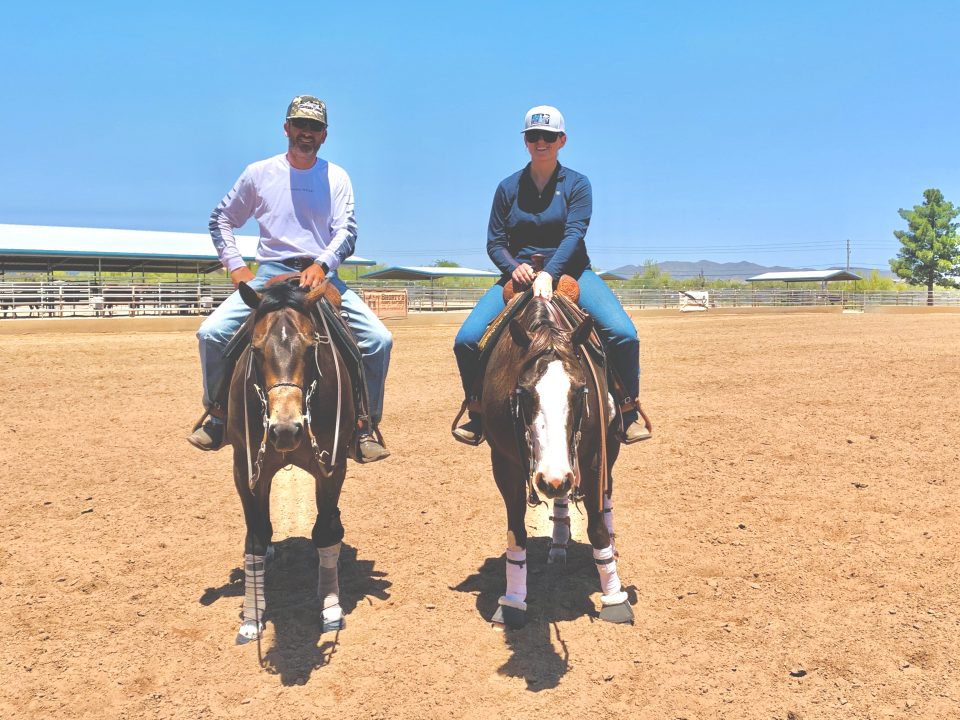When faced with voice recorders and cameras, it can be tough to get the words out right. But it’s critical to show respect for your horse and the sport of reining every time you’re in the media spotlight.
By Jennifer Paulson

You did it! You won a major or large event. The hard work, time, and effort have paid off, and you and your horse are in the spotlight being showered with applause and awards. After the win photo comes the interviews—voice recorders pop up all around you, cameras focus on you, and the microphone is front and center. It’s an easy time to get wrapped up in the adrenaline and say whatever comes to your mind first. But when you’re in the limelight, carefully choosing your words can make a world of difference for your career, your business, your horse, and your sport.
With fall’s championship season upon us, from the High Roller Reining Classic to the All American Quarter Horse Congress to the NRHA Futurity and Adequan® North American Affiliate Championships, these next few months host some of the biggest stages reining finds itself on throughout the year, all around the world. This also means media will be present and excited to talk to you about your horse, the training process that got you there, and how your horse performed—including any possible pitfalls, unexpected problems, and health issues that could’ve kept you out of the winner’s circle.
Read through these tips to prepare for when you’re under pressure to answer tough questions from the media. Thinking ahead can mean the difference in highlighting your program and the sport and seeing opportunities disappear right in front of your eyes.
Part 2: Do Some Prep & Remember As Much As You Can
Tough Questions
Sometimes an interviewer will inquire about topics you don’t know the answers to or simply aren’t comfortable discussing. Here are a few ways to work around tenuous topics and reframe the interview in a way with which you’re comfortable.
“I can’t answer that, but I do know…”
“What I really want you to know is…”
“One thing I want to be sure to convey is…”
“The most important thing for everyone to know is…”
Some interviewers like to string questions together. Use preparation to think about how you’ll tackle those types of questions and try answers like the following.
“You’ve given me a lot to address; let me start with…”
“Does that answer your first question? Can you restate the next one?”
And if you feel like you’ve made a mistake or said something incorrectly, you can always backtrack.
“I’m sorry, I misspoke; let me rephrase that…”
“Sorry—I’m a bit excited. Let me start over…”
Most of all, skip “No comment.” It comes off defensive and isn’t the impression you want to leave on the interviewer, the audience, or your sport.
Read the rest of this article at the links above.



